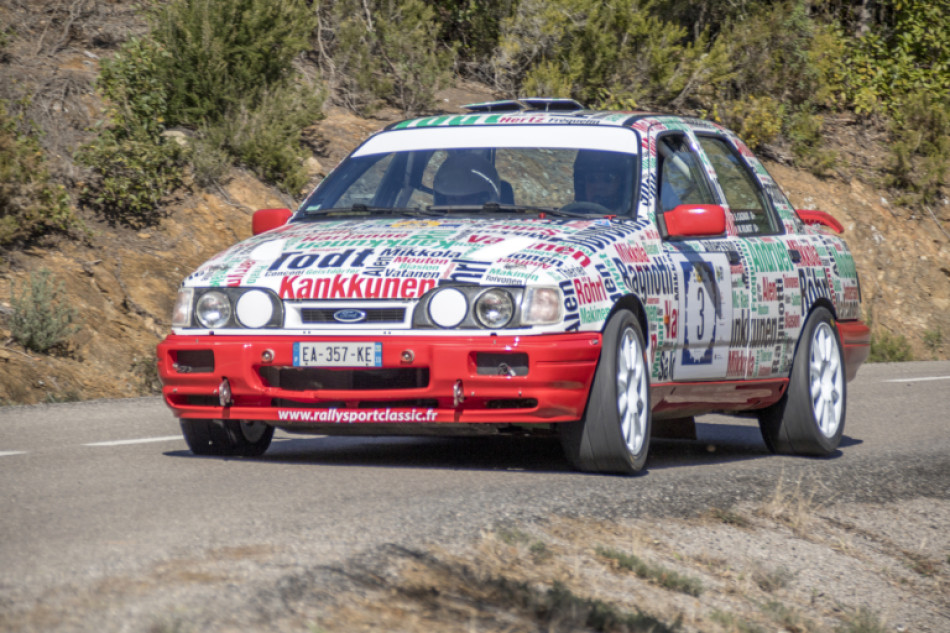Historic Rally Costa Brava: Fanfare Opening
The FIA European Historic Sporting Rally Championship opened in Spain with the victories of Serge Cazaux, Xavier Ferreiro, Steve Perez and Antonio Parisi in Categories 4, 3, 2 and 1 respectively.

The FIA European Historic Sporting Rally Championship not only celebrates the cars of yesteryear; it also honours prestige events, which have marked the history of rallies in Europe. A long-time mainstay of the “modern” car European Championship, the Rally Costa Brava predominantly features pre-1990 historic cars. The warm welcome from Girona, the host city, and the selectivity of the eleven special stages organised in the surrounding area, mean that the Rally Costa Brava benefits from a reputation that extends well beyond the Spanish borders. The 66th edition of the event, organised last weekend, attracted more than 150 crews, of which 55 participated in the so-called “sporting” rally, while the other competitors were spread among two separate regularity events.
Winner of the Rally Costa Brava a year ago, and current European Champion in Category 4 (cars from 1982 to 1990), the Italian crew of “Lucky” and Fabrizia Pons dominated the first evening of rallying from the start, which featured three special stages, winning each one of them. At the end of this first part of the rally and the 42 kilometres against the clock, “Lucky” and his Lancia Delta Integrale led the BMW M3 of the French crew Jean-François and Aline Berenguer by 40 seconds and the Ford Sierra Cosworth 4x4 of Frenchmen Serge Cazaux and Maxime Vilmot by 43 seconds.
The second day of racing would nevertheless be fatal for the Lancia, succumbing to a puncture in the fifth special stage, the consequence of which led to the transmission being damaged and the crew having to abandon. Frenchman Cazaux took the lead by nine seconds, before ceding to his compatriot Berenguer, who had clocked the best times in the sixth, seventh and eighth timed sectors. Cazaux riposted in the next two special stages, taking back the lead after nine special stages. He could no longer be dislodged, despite an ultimate attack by Berenguer in the 11th and final special stage. The Cazaux-Vilmot crew thus won Category 4, with a short lead of 6”5 over Berenguer. Cazaux at the same time took the lead in the provisional standings of the European Championship. Berenguer was not registered in the European Championship, so provisional second place went to the Finn Harri Toivonen (Ford Sierra Cosworth 4x4).
Category 3 (cars from 1976 to 1981) was taken by the Spaniards Xesús Ferreiro and Xabier Anido, who threw their Ford Escort RS1800 around the twisty roads of the Costa Brava, to such an extent that they occasionally achieved performances close to those of much more recent cars. Ferreiro’s achievements in the Championship were all the more significant given that the Porsche 911s of the Austrians Karl Wagner-Gerda Zauner and the Finns Pentti Veikkanen-Timo Jaakola were both forced to abandon (due to clutch problems for the former and engine problems for the latter).
Given its legendary status, the Lancia Stratos drew everyone’s attention whenever it appeared on the course. Steve Perez took his to victory in Category 2, in front of another charismatic Italian car, the Alfa Romeo 1750 GTAM of the Hungarian crew of Laszlo and Edit Mekler. The American Iain Dobson placed third in his Ford Escort RS1600.
Outgoing Category 1 Champions, the Italians Angelo Parisi and Giuseppe d’Angelo (Porsche 911S) started their European campaign as best they could, winning 7 of the 11 special stages and the final standings of the rally in Category 1 (pre-1969 cars). Their closest rivals were the British pair of Ernie and Karen Graham (Ford Escort Twin Cam 1600), winners of the 4 special stages and second on the final podium.
The FIA European Championship of Historic Sporting Rallies will continue on 20 and 21 April in the Czech Republic, with the 27th Historic Vltava Rally, based around the town of Klatovy.

 Facebook
Facebook Twitter
Twitter






